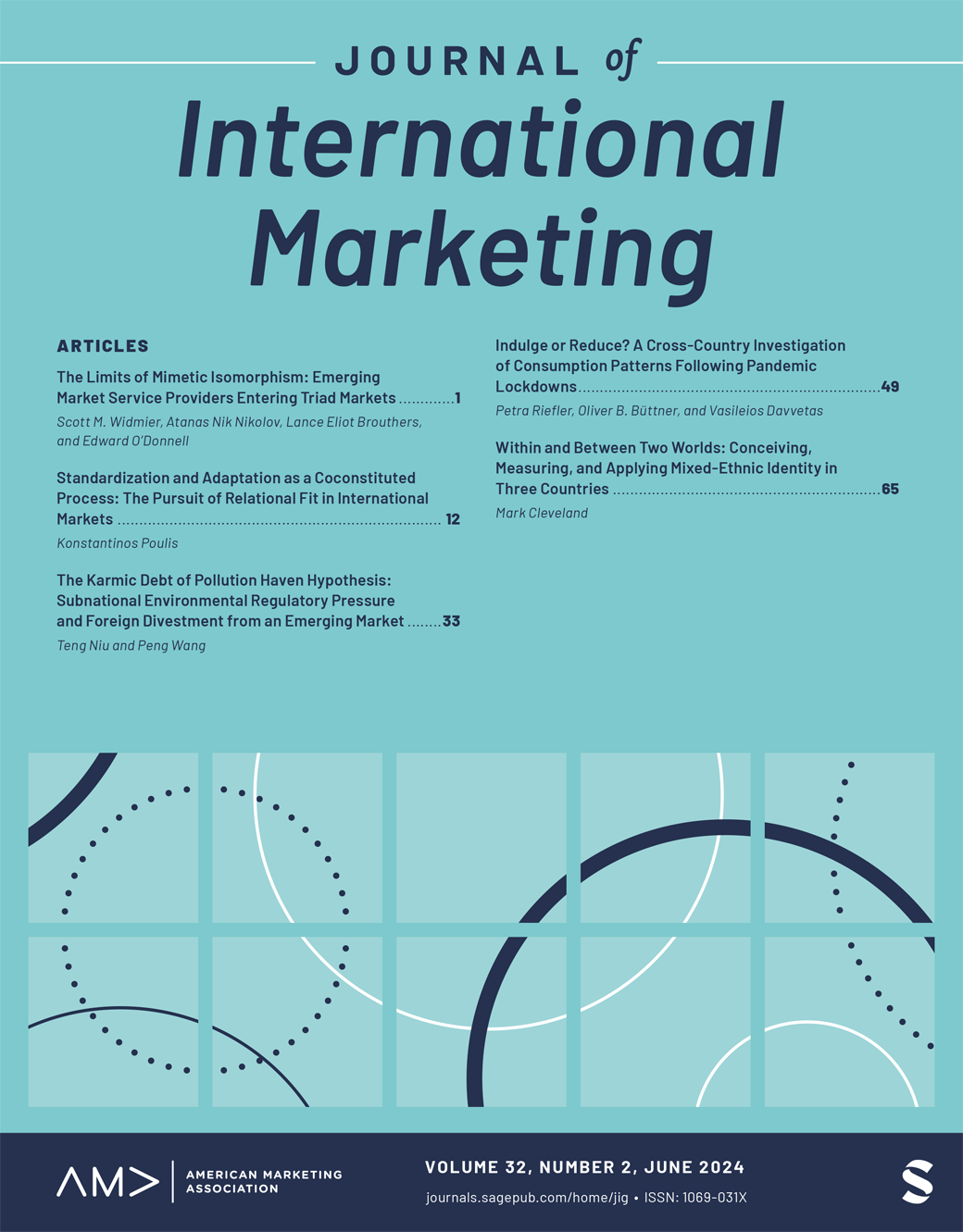EXPRESS: Local Roots and Global Responsibility: Terroir Brands and their Responsible Engagement
IF 4.2
2区 管理学
Q1 BUSINESS
引用次数: 0
Abstract
We introduce the construct of terroir branding—distinct from country-of-origin effects and place branding—to explain how, in regions such as Champagne, France (wines), Biella, Italy (wool), and Vuelta Abajo, Cuba (cigars), competing local firms develop global brands while being engaged in responsible actions that influence the brand perceptions in the global marketplace. Terroir brands have three critical features: placial distinctiveness, craftsmanship specificity, and processing traditionalism. Terroir branding integrates firm-owned host brands with a collective regional brand. Drawing on the Resource-Based View (RBV), coopetition theory, and the concept of moral engagement, we identify a virtuous circle of local collective efficacy that supports the location and enables a terroir brand to be seen by global markets as being responsibly sustained. We also identify a vicious circle through moral disengagement that can lead global markets to perceive terroir brands as irresponsibly sustained. We identify hazards such as host-brand strength variability, rival set stability, locational ownership, and competitor concentration. Finally, we highlight the importance of local terroir branding using a broad spectrum of place-based characteristics and identify conditions under which terroir branding benefits an individual brand and the wider collective of brands, while sustaining the location.《本土根源与全球责任:风土品牌及其责任参与》
我们引入了风土品牌的构建——不同于原产国效应和地方品牌效应——来解释在法国香槟(葡萄酒)、意大利比耶拉(羊毛)和古巴Vuelta Abajo(雪茄)等地区,竞争的当地公司如何在发展全球品牌的同时,采取负责任的行动,影响全球市场上的品牌认知。风土品牌有三个关键特征:地方特色、工艺特色和加工传统主义。风土品牌整合公司拥有的主机品牌与集体区域品牌。利用资源基础观(RBV)、合作理论和道德参与的概念,我们确定了一个当地集体效能的良性循环,它支持该地点,并使风土品牌被全球市场视为负责任的可持续发展。我们还发现,道德脱离会导致恶性循环,导致全球市场认为风土品牌是不负责任的。我们确定了诸如主机品牌强度可变性、竞争对手集稳定性、位置所有权和竞争对手集中等危害。最后,我们强调了当地风土品牌的重要性,利用广泛的基于地点的特征,并确定了风土品牌在保持地点的同时有益于单个品牌和更广泛的品牌集体的条件。
本文章由计算机程序翻译,如有差异,请以英文原文为准。
求助全文
约1分钟内获得全文
求助全文
来源期刊

Journal of International Marketing
BUSINESS-
CiteScore
8.70
自引率
17.20%
发文量
28
期刊介绍:
As the globalization of markets continues at a rapid pace, business practitioners and educators alike face the challenge of staying current with the developments. Marketing managers require a source of new information and insights on international business events. International marketing educators require a forum for disseminating their thoughts and research findings. Journal of International Marketing(JIM) is an international, peer-reviewed journal dedicated to advancing international marketing practice, research, and theory. Contributions addressing any aspect of international marketing management are published each quarter.
 求助内容:
求助内容: 应助结果提醒方式:
应助结果提醒方式:


